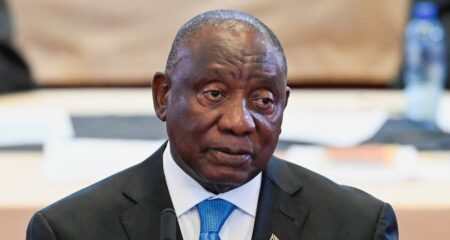 Energy regulator Nersa on Thursday granted state-owned power utility Eskom an average tariff increase of 12.7% for 2025/2026, less than the debt-laden company had requested but more than four times the most recent consumer inflation number.
Energy regulator Nersa on Thursday granted state-owned power utility Eskom an average tariff increase of 12.7% for 2025/2026, less than the debt-laden company had requested but more than four times the most recent consumer inflation number.
Eskom had sought tariff increases of roughly 36% from April, 12% in 2026 and 9% in 2027, prompting a backlash from political parties and consumers facing a weak economy and a cost-of-living crisis.
Consumer price inflation was running at 3%/year in December, according to Statistics South Africa.
Tariffs are a major revenue earner for Eskom, which last month said it expected to post its first annual profit in eight years supported an improved operational performance and a state relief package.
Eskom, the recipient of a R250-billion government bailout, asked the regulator to raise tariffs by more than a third to avoid having to ask for more state funding. It’s blamed the state’s inability to rein in delinquent municipalities and errors made by the regulator in adjudicating earlier tariff increase applications to boost prices.
The power utility has long pursued cost-reflective tariffs to offset increases in primary energy costs, including the coal it relies on to generate more than 80% of South Africa’s electricity. Eskom’s request drew criticism from civil society groups, municipalities and energy minister Kgosientsho Ramokgopa, who said it would undermine economic growth and deepen poverty in one of the world’s most unequal nations.
Expansion
Eskom has succeeded in stabilising national energy supply since March, after years of frequent outages caused by breakdowns at its poorly maintained coal-fired power plants. CEO Dan Marokane, who took office in March 2024, is looking to grow the business including through an expansion of its renewable energy assets.
Read: Load shedding may have ended, but Eskom is still in big trouble
Still, the financial viability of the utility remains at risk unless Eskom addresses cuts costs and addresses growing payment arrears from municipalities, the auditor-general said on Wednesday. It also warned that higher electricity tariffs could increase demand for illegal supply and vouchers. — Wendell Roelf and Nqobile Dludla, (c) 2025 Reuters, with additional reporting by Paul Burkhardt, (c) 2025 Bloomberg LP
Get breaking news from TechCentral on WhatsApp. Sign up here.
Don’t miss:
Electricity prices in South Africa: a breaking point is near




